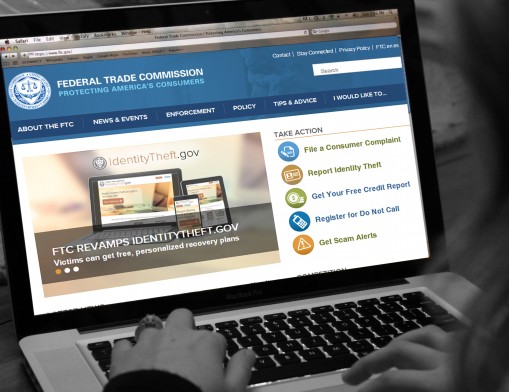Scams In All Shapes and Sizes
“Financially Fit” is a column published by RCB Bank to help you gain knowledge on all things financial. Fitness guides – RCB Bank professionals in the field – offer ideas to help you strengthen your money sense, customize savings training, and provide qui
By: RCB Bank | Category: Financial Services | Issue: March 2016

Many of us, in fact, more than 30 million Americans annually, admit to being duped by some scam or another. If we are lucky, the loss is minimal and we change our response to door-to-door salesmen or phone solicitors. Some of us are not so lucky, and the financial and emotional loss is tragic. Everyone is at risk of being scammed. Fraudsters are intelligent. They do their homework and collect information about you, so when they strike, you often don’t know you’re a victim until it’s too late. Defend yourself by knowing the latest scams. Here’s a few noted by the Federal Trade Commission (FTC) consumer protection agency. Tax ID theft – Fraudsters steal your tax refund by filing with your Social Security number and other stolen information before you do. Tax ID theft was the biggest form of ID fraud reported to the FTC in 2014, and costs consumers $5.2 billion a year. Filing early can help minimize fraud. It’s also important to be extremely cautious about how, and with whom, you share your personal information, and be suspicious of emails or phone calls claiming to be from the IRS. Debt collectors – You receive a call saying you owe money on a debt and you need to pay now or face serious consequences. Don’t be bullied. If you receive a call, ask for the person’s name, address, company they represent and the original creditor. If they can’t provide this information, hang up. If you’re concerned about an unpaid debt, call the creditor at the phone number provided on your loan or billing paperwork. Online dating and sweetheart swindles – Scam artists are patient and willing to take the time to gain your trust and heart. While their stories vary, scam love interests will often request money after a tale of tragedy leaving them in need of help. Red flags include the relationship becoming romantic extremely quickly, the person claiming to be abroad and needs help getting home, and the person making excuses about not being able to talk to you by phone or in person. Fake Social Security protection – The subject line says “Get Protected,” and the email talks about new features from the Social Security Administration that can help you monitor your credit report and alert you to unauthorized use of your Social Security number. It even cites the IRS and the official-sounding S.A.F.E Act 2015. It sounds real, but it’s made up. It’s a phishing email to get you to click on a scammer’s link. If you do, a scammer can install malware — like viruses and spyware — on your computer. Or, the link might send you to a spoof site — a lookalike website set up by a scammer to trick you into entering your personal information. Medicare imposters – Imposters pretending to work for Medicare call to verify your bank account number, and even though it sounds convincing, it’s a scam. Some callers may tell you the first few numbers of your account and ask you to fill in the rest. If you do, you give them access to your money. Medicare will never call and ask for your bank account information. If you’re concerned, call 1-800-MEDICARE. The list goes on and on – job scams, mystery shopper scams, online purchasing scams, lottery scams, debit card scams - scammers don’t discriminate and they will try anything and everything to sneak into your wallet. Don’t be a victim. Be on guard every time you pick up the phone, answer the door and login online. The FTC wants to know if you have been a victim of fraud or a scam. You can file a complaint at www.ftc.gov and also study up on the latest scams. Read more articles on building and protecting your money at www.RCBbank.com/FinanciallyFit.
RCB Bank
For more information, contact:
RCB Bank Online:
More about RCB Bank:
More ArticlesCurrent Coupons/OffersSubscribe
For Free!
